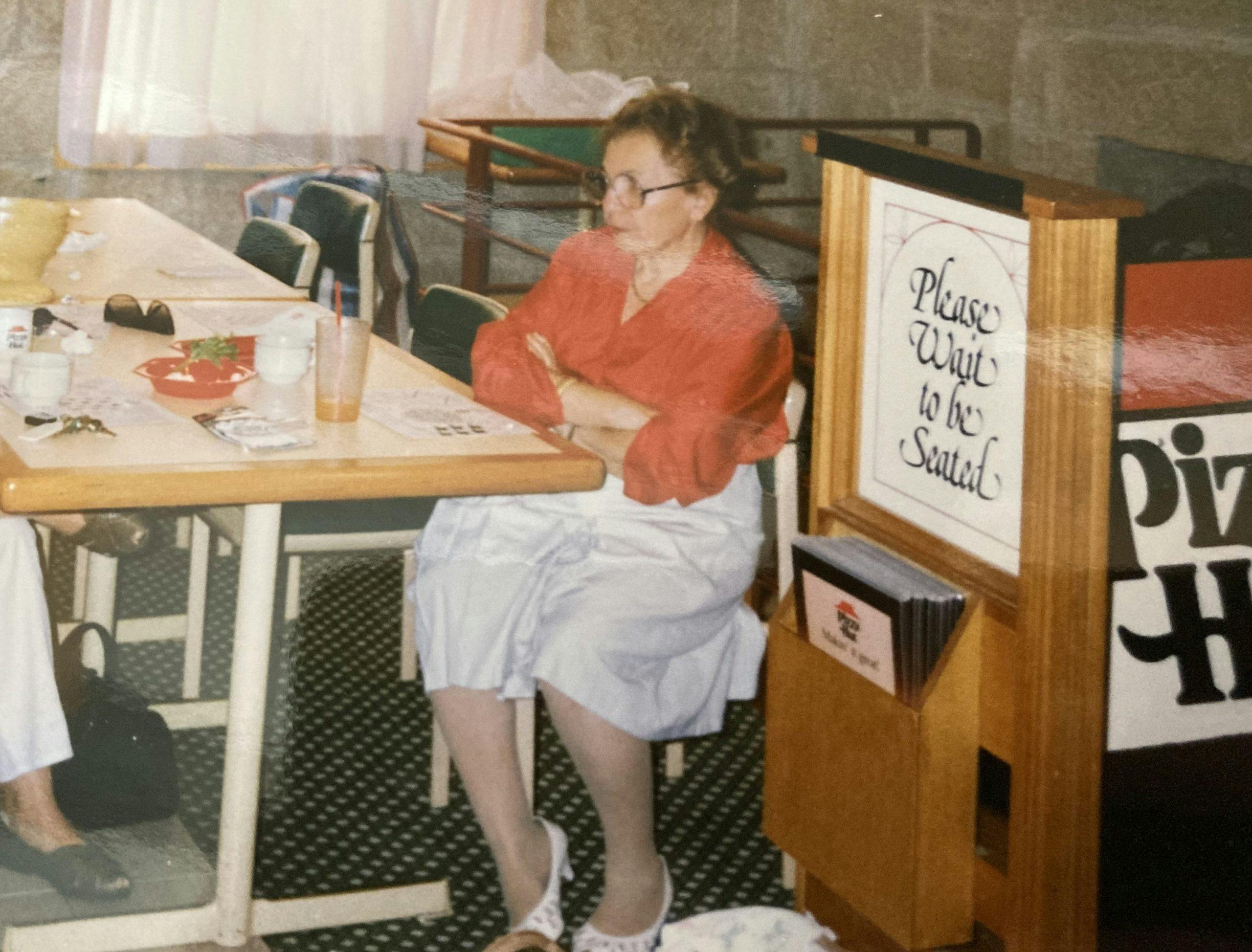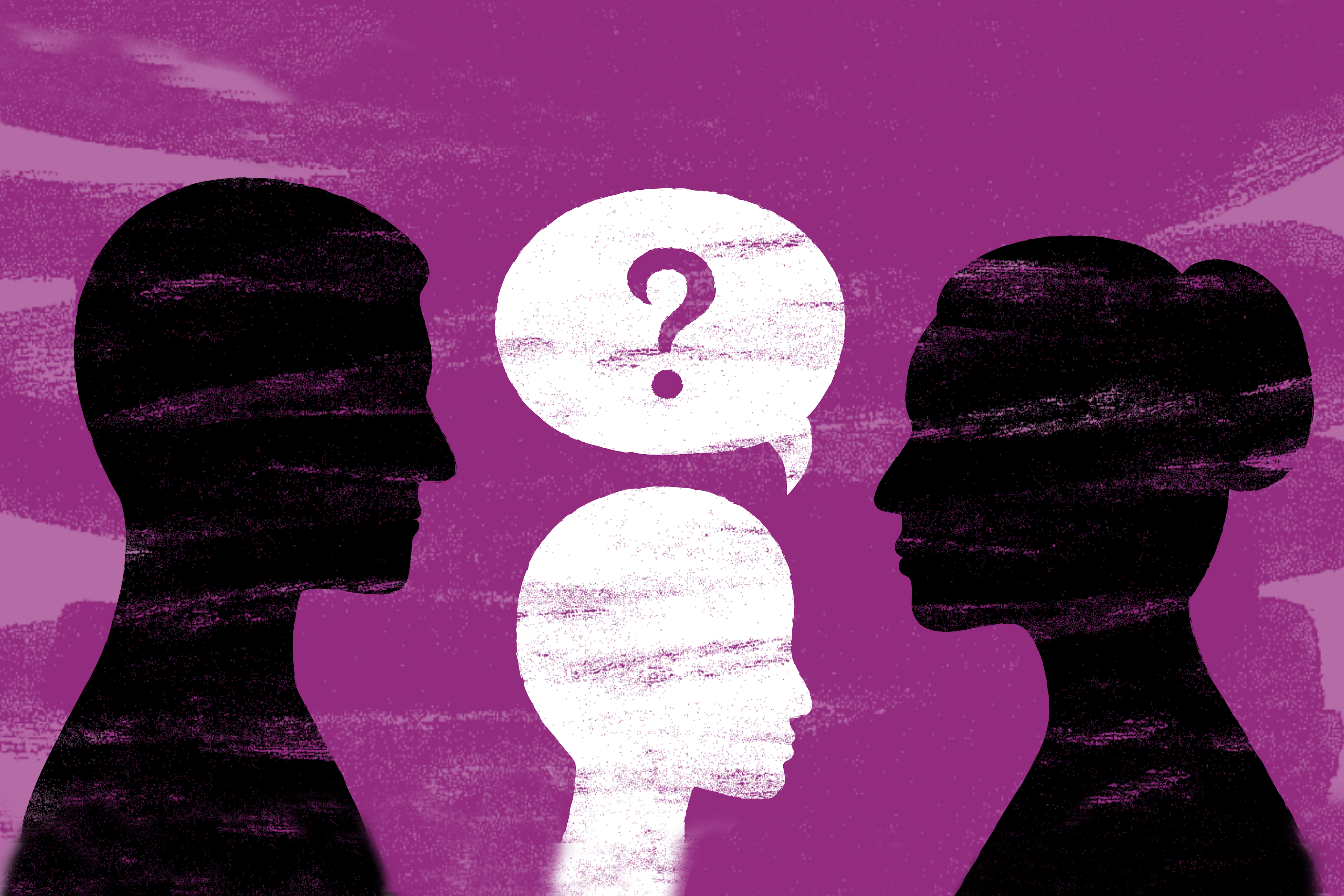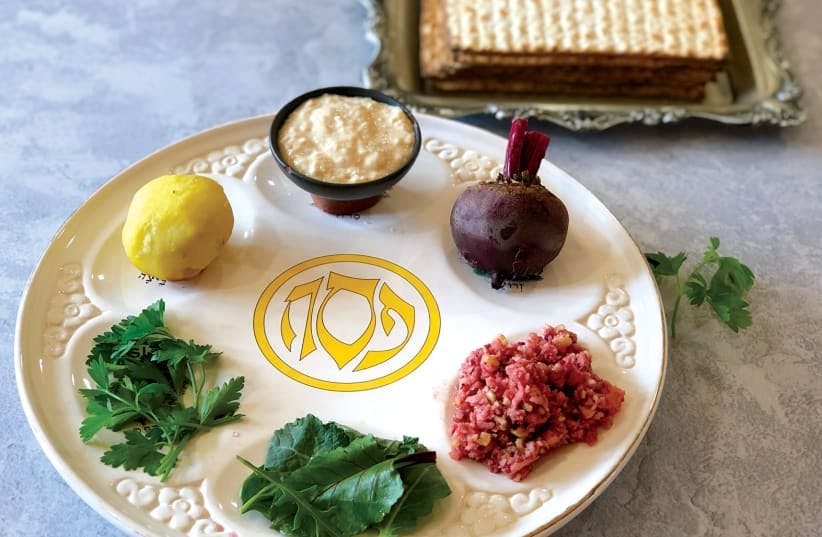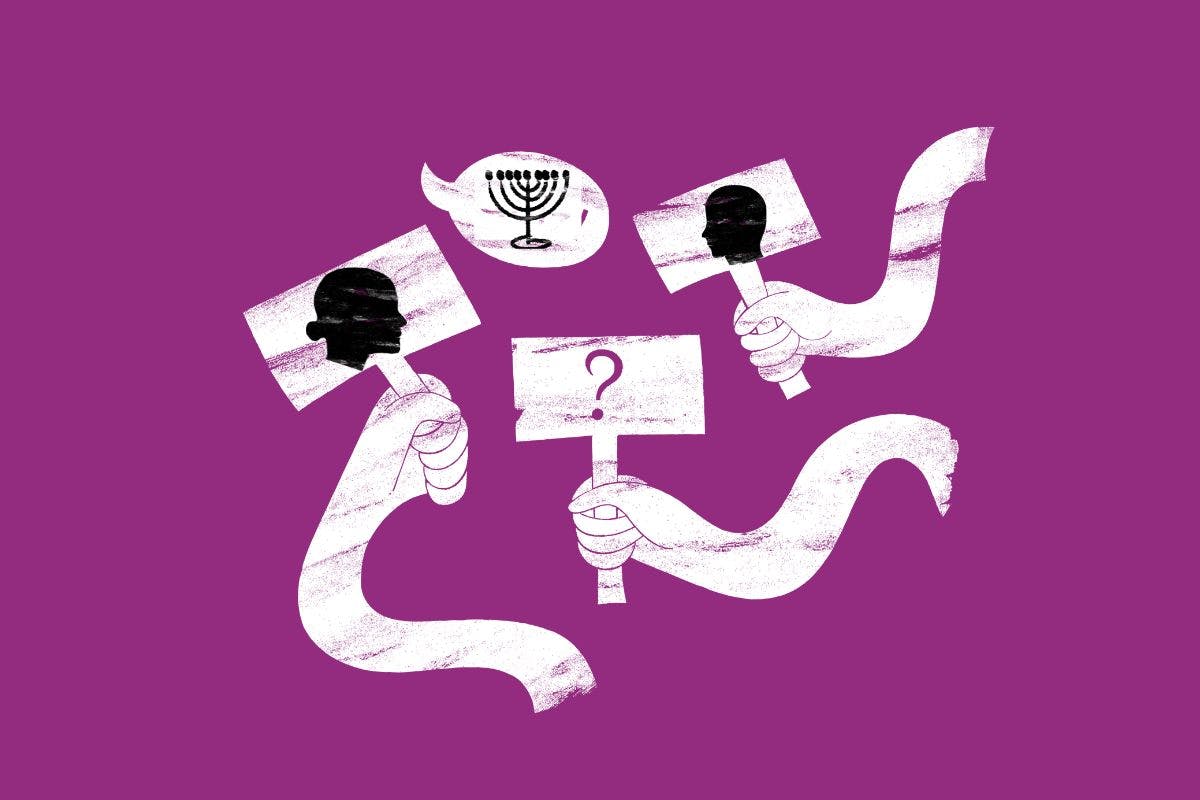Published: 6 May 2024
Last updated: 10 May 2024
It’s the morning of Yom Hashoah and I’m doing something extremely millennial. I’m searching for the best image of my late grandmother to post to Instagram.
I want the photograph to pull at all the appropriate heartstrings, to portray both Adela’s vulnerability and her strength. I’m aware of how performative social media is and a big part of me is cringing at the thought of putting my family’s trauma ‘on display’. Another part of me genuinely wants my followers to take note, to literally #neverforget that the six million lives lost belonged to real people, like my grandmother.
Eventually I find it. It’s a candid photo of Adela sitting by herself, arms folded, as she often was, at a table by the edge of my sister’s birthday party in an iconic suburban Pizza Hut in Sydney.
I imagine my grandmother is observing the kids playing pass the parcel and bitterly comparing it to her own joy-deprived childhood. I’m certain she’s quietly lamenting all the food going to waste. There was never a shortage of discarded crusts on the floors of the Pizza Hut parties of our youth.
I love the idea of a room full of people being forced to reflect on intergenerational trauma when they least expect it.
In the photo, Adela is wearing a fire engine red blouse and a white skirt. These are important details because when I scan the rest of the image, it takes me less than a second to realise that my grandmother has come to the party accidentally dressed as the Pizza Hut logo to her right.
I start to giggle. It’s this laughter which prompts me to reconsider publishing the photo altogether.
Surely my followers will find the resemblance too distracting? Will the humour undermine the gravitas Yom Hashoah deserves? I could acknowledge the dissonance in my caption, but is it even ok to lace Holocaust remembrance with humour?
This is a question I have been asking myself for years, ever since I started to notice that my millennial friends were reluctant to engage in Holocaust content. I’d hear complaints about our boomer parents noodging us to watch a certain Holocaust film or Netflix series, how ‘triggering’ they were (yes, another very millennial concept). At the same time shows like Broad City and Transparent were gaining popularity. Both series contain individual episodes about the Holocaust and intergenerational trauma but are very much branded as comedy and dramedy respectively.
The question is reignited in the stalls of Jess Fuchs’s 2023 Sydney Comedy Festival show. Minutes into the set, the TikTok star is telling her beguiled, mostly Gen Z audience that she comes from ‘Holocaust stock’ and assures us that we’ll be able to stomach the ensuing content: ‘You can handle it, you’ll be fine’.
Jess pokes fun at a surprisingly common conversation in Jewish homes – which family members would survive the Holocaust based on their skillsets and constitution. She is getting so many laughs and at least to me, it feels appropriate, it feels ideal. I love the idea of a room full of people being forced to reflect on intergenerational trauma when they least expect it.
Jess’s bit reminds me of a darkly-comic conversation I once had with some Jewish friends. We riffed on what seemed to be an unspoken contest among our generation – a competition as to who has the most Holocaust survivors in their family. How having 'proof' of this intergenerational trauma has a certain cachet, provides VIP access to an elite, albeit neurotic club that say, our South African friends couldn’t gain entry to because their Lithuanian ancestors were 'smart enough to flee to Joberg before the shit hit the fan'.
I hadn’t felt such sympathy, grief and devastation for my Eastern European ancestors until this conversation. I hadn’t laughed so hard either. I needed to laugh. 'If you don’t laugh you’ll cry', as the saying goes. Or, 'If you don’t laugh, you’ll slip into a deep, all consuming depression again', as we say in my house.
A few months later I’m watching David Baddiel headline the opening night of the Sydney Jewish Writers Festival on a panel discussion about the Jewish tradition of coping with trauma through comedy. Baddiel shares his funny but hard-hitting musings on anti-Jewish racism as referenced in his book and documentary Jews Don’t Count. Also on the panel is comedian Ben Ellwood who maintains that his grandfather – a victim of the Holocaust – claimed that laughter and comedy is what got him through all the hardships.
'If you don’t laugh you’ll cry', as the saying goes. Or, 'If you don’t laugh, you’ll slip into a deep, all consuming depression again', as we say in my house.
Of course I understand that there is a time and place to make jokes. I appreciate there’s a difference between jokes made in private conversations with friends and jokes made publicly by people with enormous platforms.
I also think that there’s a line. I believe Joan Rivers crossed it with the insensitive comment she made in the 2013 Heidi Klum Academy Awards dress scandal. I don’t even want to repeat it here, but I do agree with Rivers' sentiment that humour is a powerful tool to remind people about the Holocaust.
I’m not sure if my grandmother Adela was a fan of Joan Rivers. In fact, I very rarely saw Adela laugh. My most vivid memories often position her on the outer, never fully engaging, sitting with her arms folded, observing her children and grandchildren make jokes around a Seder trestle, a bar mitzvah kiddush, a nursing home garden bench, a table at an iconic Pizza Hut in the 90s.
So as we remember all of the lives lost on Yom Hashoah this year, I also remember the grief that the living carry with them. The despair that hangs like a thick, dark cloud above them.
It’s the intergenerational trauma cloud and it encompasses all the anxiety and neuroses that are so often the butt of the Jewish joke because sometimes the cloud is just too heavy, too angry and it’s threatening to deprive us of any joy. It needs a bit of humour to crack it open, to let a little light in.





Comments2
Sue Ban6 May at 10:09 pm
Tami, you’re a gifted writer!!
Only you could turn the tragic reminder of the Holocaust into something so personal and more poignant through a commentary on humour and comedy. I am writing with tears in my eyes when I remember Adela’s pain, isolation and loneliness… how clever… you’ve captured everything!!!
Ileana Epstein6 May at 06:54 am
Tami, you clever and talented sweetheart. Brilliant piece of writing again!! Keep going and take pride in your achievements. I am a great fan, especially as I’ve known you since you were born. Love and hugs. Xxx👏👏👏👍